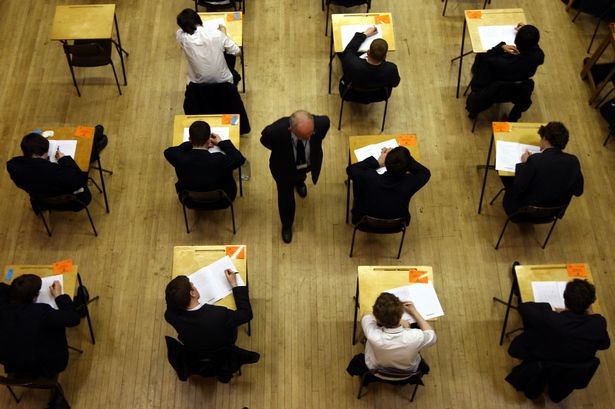With exam season officially underway, leading gut health supplement brand PrecisionBiotics, have scoured TikTok to find the most viewed tips and tricks for dealing with exam anxiety according to the popular social media app.
While it is normal to feel a little anxious about exams, especially when there is pressure to achieve a certain grade, exam stress can cause feelings of serious anxiety or depression which can impact a student’s overall health, sleep and eating habits.
And according to a recent study from the Association of School and College Leaders, anxiety around exams is getting worse.
They found over four out of five headteachers (82%) reported that stress and anxiety surrounding exams were at higher levels than before the pandemic. Additionally, 78 per cent had received more requests for students to take exams in separate rooms, away from the main exam hall.
With students undoubtedly feeling the pressure to succeed, many have turned to the popular social media app TikTok for tips on how to better manage exam anxiety.
The hashtag #ExamStress currently has over 457 million views, nearly four times higher than #RevisionTips which sits at 122million, meaning more people are looking for ways to manage their stress than help revising for the exam itself.
With this in mind, PrecisionBiotics have looked at the top viewed videos on TikTok detailing tips and hacks for dealing with exam anxiety and have broken them down into what you can do before the exam and during. The brand however are keen to stress the importance of understanding that social media advice should always be treated with caution, especially when it comes to your health.
Andrea Bent, Senior Digital Marketing Manager for PrecisionBiotics, adds: “Social media is a powerful tool for sharing information and anecdotal tips and tricks, but it in no way can replace the advice of a trained professional.
“It’s important that if the stress surrounding your exams are causing you to feel anxiety, or impacting your mental and physical health in any way, that you speak to someone such as your parents or your doctor. They will be able to provide you with the help and advice you need in order to ensure your exams aren’t negatively impacting your overall health.”
Before The Exam
- Use Productivity Apps
While your phone can sometimes be more of a distraction when you’re trying to study, there are actually a huge variety of resources you have access to help promote productivity thanks to the appstore. One particular app doing the rounds at the moment is Flora, which allows users to pledge set revision times towards a reforestation charity, meaning that if users start to procrastinate and use their phone when they should be studying they have to make a donation to the charity. Iphones also allow users to set daily limits on apps.
-
Clean Your Study Space
It may sound cliche, but a clean study space can actually help reduce your anxiety levels and this is because a study in 2009 found that clutter can lead to increased levels of cortisol – a stress hormone. Additionally a cluttered study space can lead to more unnecessary distractions due to the higher levels of “visual noise” going on around you. Cleaning your desk can also be used as a way to take a break from studying and give yourself time to relax.
-
Schedule ‘Reward’ Time
Very few people actively enjoy revision or studying, however it’s necessary in order to understand a subject and prepare yourself for the exam. Which is why it’s important to include reward time in your revision schedule, such as giving yourself 30 minutes of ‘free’ time for every two hours of studying. Additionally, picking an activity you know you enjoy and helps you feel relaxed will help your brain break the association between studying and stress.
-
Use ASMR To Help Promote Healthy Sleep
Research from the University of Kansas (KU) in 2021 further solidified the link between test anxiety and poor sleep, showing that one triggers the other which in turn reduces performance on the tests that caused the anxiety in the first place. If stress over your exams is making it difficult to relax at night and get the recommended eight hours of sleep, multiple TikToks suggest utlising ASMR which is thought to help activate regions of the brain associated with calming, sleep-inducing hormones like dopamine and oxytocin. Research has also shown that among people who use videos or audio clips to induce ASMR, 82% use ASMR to help them fall asleep.
-
Cancel Out Last Minute Studying
While it may be tempting to try and cram in some last minute studying right before the exam, research has proven this can actually increase anxiety as we are often in a panicked state, especially if we come across something we haven’t revised forcing our brains in panic-mode. And even if we’re not the one last minute studying outside the exam hall, our brains can pick up on how others are feeling, meaning that if everyone around you is panicking your brain will tell you you should be too. Which is why one of the TikTok tips is to use music to block out any last minute studying, with the added benefit that music can often make us feel relaxed and anecdotal evidence suggests that listening to music while studying can help your brain associate that music with the information you’ve just learnt.
During The Exam
-
Change Your Physiology To Neutral
If you begin to panic during your exam, one of the best things you can do according to TikTok is change your body language to help break your brain out of its negative, panicked state back to a calmer neutral state. This can be as simple as taking a drink of water, stretching your arms like you’re yawning or by using Physiological Sighs. These are a type of breathing exercise where you take two quick inhalations followed by a long exhale, with some evidence showing this can help activate your parasympathetic nervous system – your rest and relaxed response.
-
Mini Blurts
Sometimes the main trigger for stress or anxiety during an exam is the question itself, especially if you feel you don’t know the answer causing our brains to fixate on that panicked feeling of being unsure. One technique to help combat this is a ‘mini blurt’ where instead of trying to answer that specific question you spend a few moments writing down everything you do know about the subject as a whole on a scrap piece of paper. This can help kickstart your brain back into problem solving mode and help jog your memory.
-
Blow On Your Thumb
Probably the strangest tip on this list, however if you’re in need of a quick stress fix that can sort of reboot your nervous system back into a more relaxed state the easiest thing you can do is stick your thumb in your mouth and blow for roughly 30 seconds. This helps activate your vagus nerve which is spread throughout your body. Research shows that stimulating your vagus nerve can decrease your heart rate and blood pressure, making you feel more relaxed.
PrecisionBiotics have also shared a number of their own tips and tricks for managing exam stress, including the interesting link between gut health and the brain – known as the gut-brain axis.
Some of their tips include:
-
Maintaining a healthy diet
-
Deep breathing exercises
-
The importance of good time management
-
Taking regular breaks
You can check out more of their advice for dealing with stress with more information on the gut-brain axis here.
Help keep news FREE for our readers
Supporting your local community newspaper/online news outlet is crucial now more than ever. If you believe in independent journalism, then consider making a valuable contribution by making a one-time or monthly donation. We operate in rural areas where providing unbiased news can be challenging. Read More About Supporting The West Wales Chronicle

























